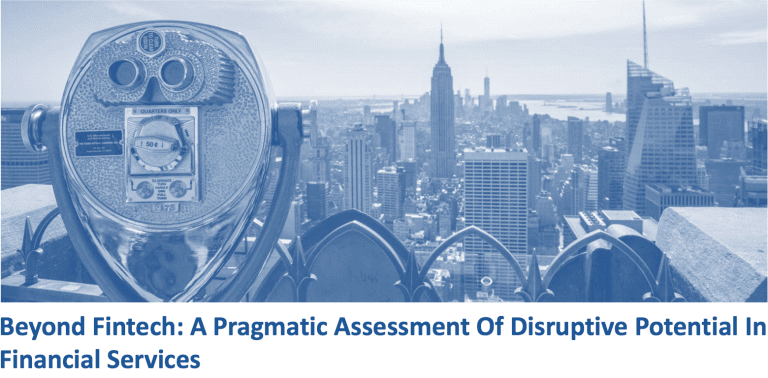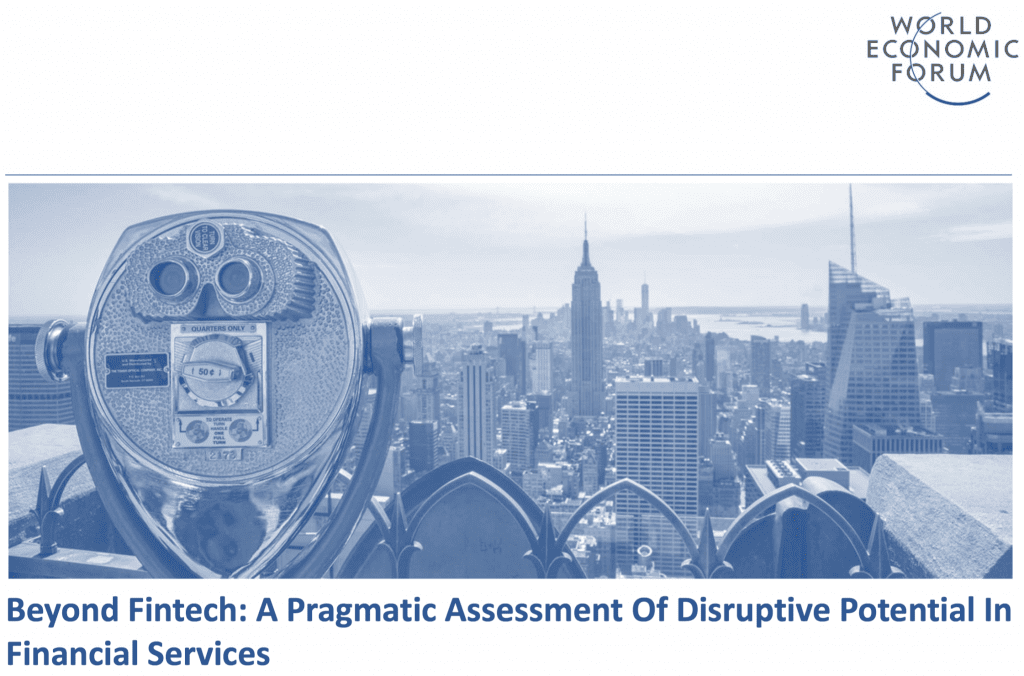Back in April I attended a couple of roundtable discussions in New York organized by the World Economic Forum. Many leaders from the fintech industry were there as well as some leaders from traditional finance and consultancies. We had very productive discussions on the future of fintech and afterwards they said that out of these sessions would come a detailed white paper.
Today, the World Economic Forum released a report titled, Beyond Fintech: A Pragmatic Assessment Of Disruptive Potential In Financial Services, that was the result of those and many other discussions they had with leaders from around the world. The report aims to answer the question about whether fintech companies will really change the financial landscape. It builds on the last report in 2015 called The Future of Financial Services, sharing the impact of fintech firms and various outlooks for the future.
Here is a very short summary of the report released today:
Our findings suggest that fintechs have materially changed the basis of competition in financial services, but have not yet materially changed the competitive landscape. They play a critical role in defining the pace and direction of innovation across the sector but have struggled to overcome the scale advantages of large financial institutions.
Below are some of the key findings from the report:
- Fintech start-ups have so far fallen short of their ambitions to upend the competitive landscape in finance, driving innovation but struggling to capture market share in mature markets.
- What fintechs have done is define the direction and speed of innovation across most areas of financial services; they have also set new and higher bars for user experience.
- Large technology firms like Amazon and Google may represent the largest competitive threat to financial institutions, as their AI and cloud computing services become more central to the sector, and customer data rises in importance.
- Models of financial services innovation around the world are diverging, benefitting local firms and making it harder to co-ordinate a regulatory response.
It is a detailed report, some 196 pages, covering most of the major verticals in financial services: payments, insurance, digital banking, lending, investment management, equity crowdfunding and market infrastructure (including blockchain). If you want to get a sense for where financial services is heading this report is a must read.



